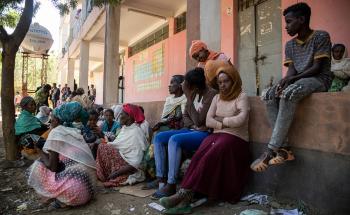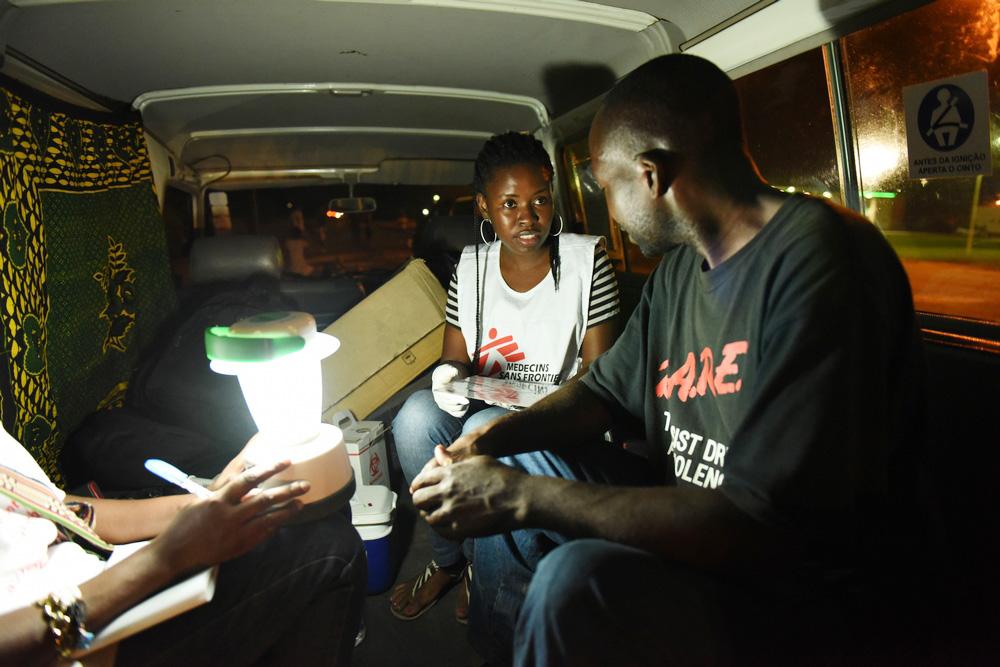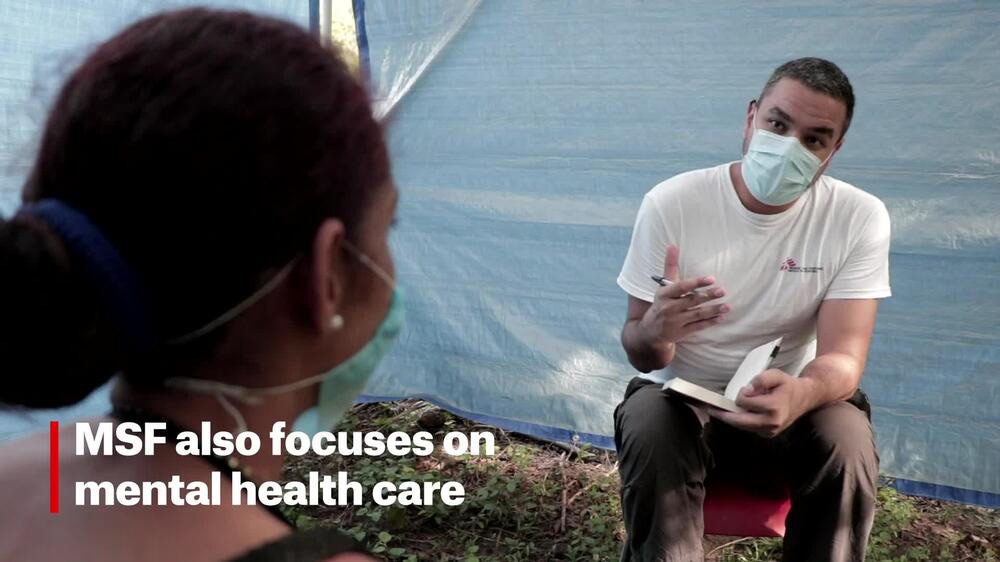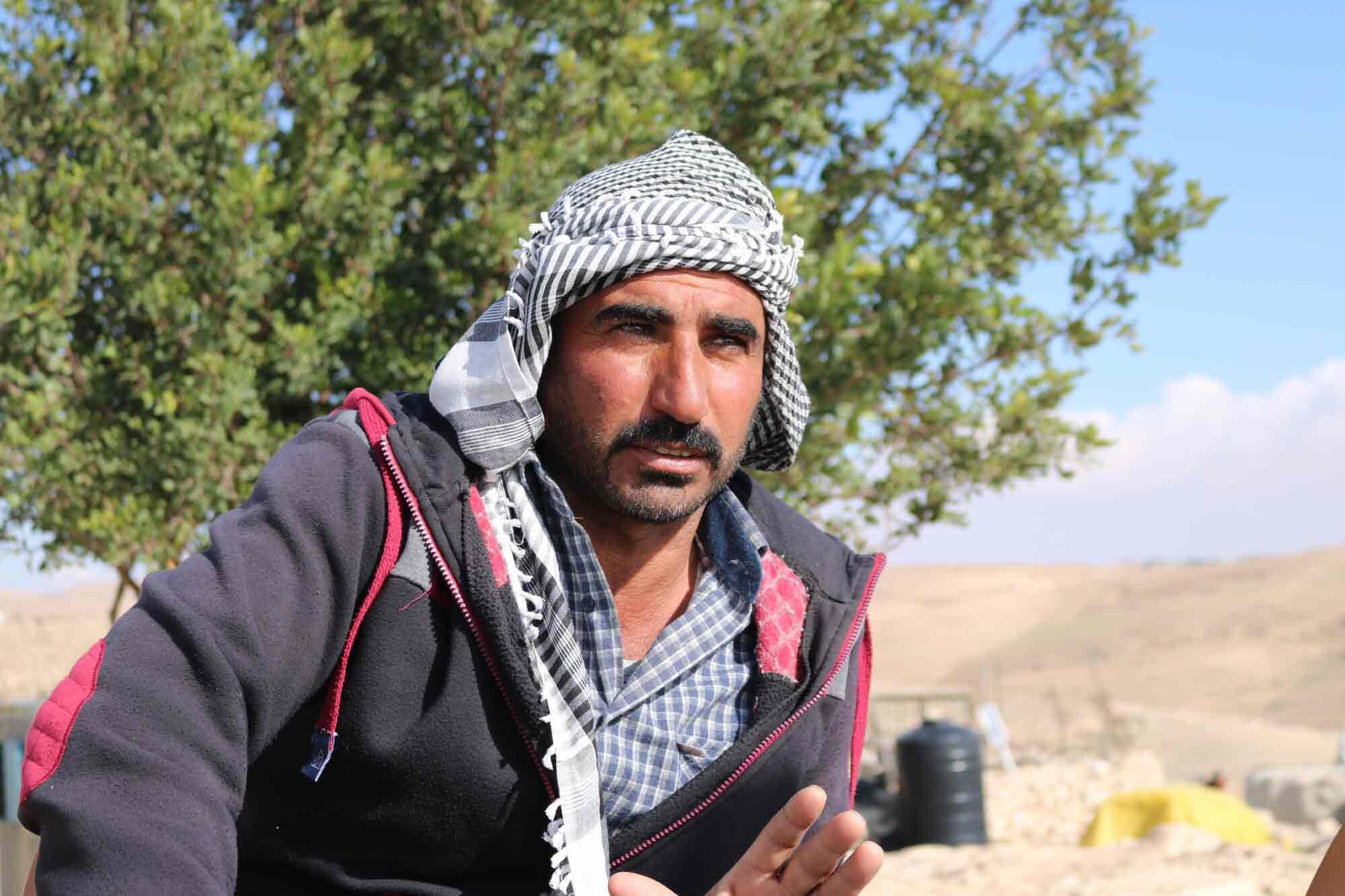

Exclusion from Healthcare
People who are excluded include undocumented migrants, street children, sex workers, prisoners, drug addicts or the mentally ill. Sometimes, entire communities are systematically neglected by relevant authorities. These might be people who live in slums or communities hit by criminal violence and gang warfare. Our teams provide medical, psychological and social support to people cut off from health services. Our work also involves drawing attention to the obstacles patients face in accessing healthcare.

Healthcare Needs
Many societies across the world do not generate the wealth required to be able to look after the health of people on a more or less fair basis. Others have the resources but the political and social will to do so is lacking.
In certain countries, those incarcerated in prison often have little or no access to healthcare. With a lack of water in unhygienic cells, conditions such as malnutrition, dehydration, and skin and respiratory infections are rampant. When cells become overcrowded in countries that are susceptible to tuberculosis, they can become breeding grounds for the disease.
Since 2010, MSF has been working in three prisons in the Cambodian capital of Phnom Penh, where 25 per cent of the country’s prisoners are held. Our teams provide care and treatment for HIV and TB, and have introduced measures to improve infection control, such as a quarantine area in one of the prisons.
For our patients to avoid developing drug resistance to the disease, our staff provides follow-up treatment once prisoners are transferred or released. We make sure they have access to the drugs they need, as well as to medical services.
In some countries, people are excluded from healthcare because they are forced to live outside of normal societal bounds. In Honduras’s capital, Tegucigalpa, the homicide rate is the highest in the world. This frightening statistic is largely due to drug trafficking, where gangs extort businesses, terrorize local people and engage in vicious turf wars. People are often too scared to receive healthcare.
Many migrants in Honduras make a living as commercial sex workers or drug dealers and the lack of healthcare, combined with the rapidly growing commercial sex trade, has led to a huge increase in sexually transmitted infections (STIs).
On the street, MSF doctors diagnose the people they meet and provide first aid. Psychologists provide counselling and stand ready to listen to what the people have to say. Others with more serious or chronic health problems and addictions are referred to our healthcare facilities, where MSF doctors and psychologists provide additional medical care for physical, sexual and psychological violence and support patients throughout their treatment.
In many countries, certain medical conditions – especially mental and psychological disorders – are handled primarily by silence. Taboo can be as big a health problem as any.
Some 450 million people worldwide suffer from mental health disorders, according to the World Health Organization (WHO), yet an enormous gap exists between those who need healthcare and those who receive it.
Some medical conditions, such as obstetric fistulas, can be a result of, and also lead to, people being excluded from society. Fistulas – a hole between the vagina and rectum through which urine and stool leak continuously – are almost always caused by obstructed labor. They occur mainly in remote areas in Africa, where few hospitals exist or midwives and access to obstetric care is scarce.
In most cases, women with fistulas develop psychological conditions. Because of the physical symptoms, they will often be excluded from their community and abandoned by their husbands who will take another “healthy” wife.
In 2009, MSF built a ‘Women’s Village’ adjacent to the general hospital in Abéché, Chad, where women with fistula can go to recuperate and receive psychological support, helping them to reintegrate into their communities.

Violence in Guerrero, Mexico
Violence in Guerrero, Mexico
Since 2016, MSF has run mobile clinics in Guerrero, Mexico - one of Mexico's most violent states. Violence is something that affects different communities in the state of Guerrero, mainly due to fighting between different organised crime groups over the cultivation of poppies and avocados. This violence causes communities in the affected villages to live in confinement and leaves people without access to healthcare or education. Our teams attempt to fill these gaps through mobile clinics offering health services, including preventive measures against COVID-19.
